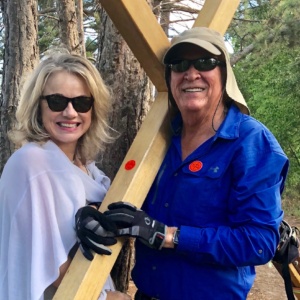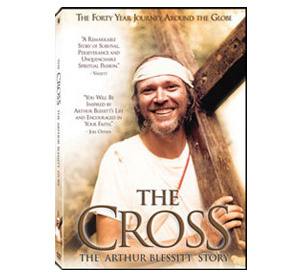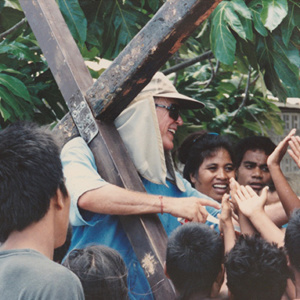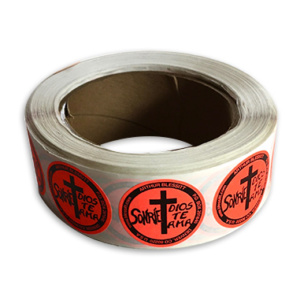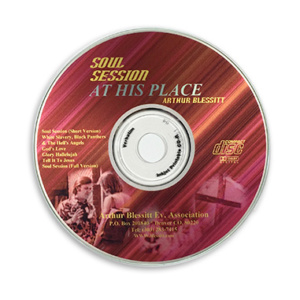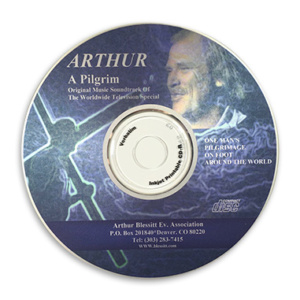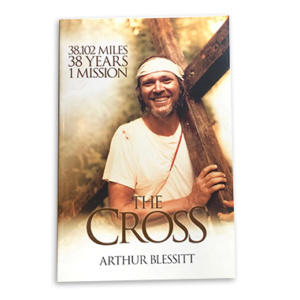CHAPTER 2
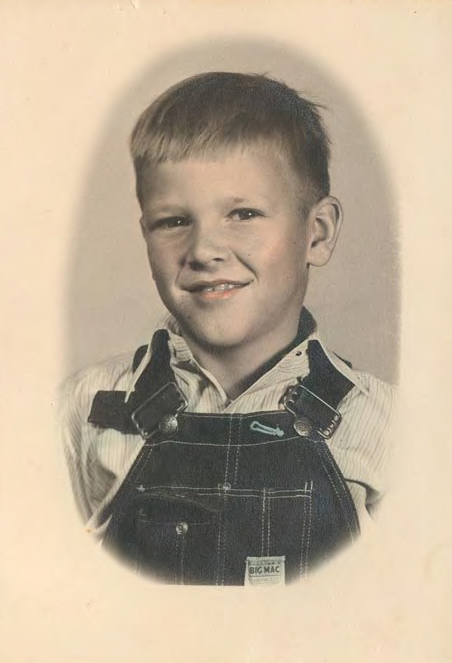
WHERE SHOULD I GO?
WHAT SHOULD I DO?
Saudi Arabia
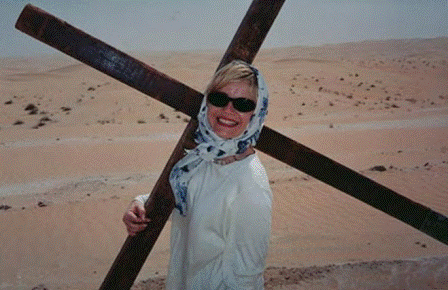 The sand was hot, but my face was cooled with tears of joy as today Denise and I lifted up your cross, Jesus, in this land. They said it couldn’t be done, but turn left, turn right and we made it.
The sand was hot, but my face was cooled with tears of joy as today Denise and I lifted up your cross, Jesus, in this land. They said it couldn’t be done, but turn left, turn right and we made it.
The cross was lifted up and we claimed your land. This desert shall bloom in the glory of the Lord. I can hardly believe my darling wife volunteered to stay behind to guarantee my return. Oh, how fearless she is! Her commitment continues to amaze me. Those guards were kind, their hospitality so touching and their hearts so open to love. And, yes, I dream of Saudi filled with churches, children singing in the streets and women free to drive and live and love. I dream of freedom filling every heart with the good news of Jesus going forth and finding his home in every person. No walls. No barriers. Nothing can stop your will, oh Lord. You, Lord are the Lord of Hosts, and mighty is your name, and glorious are your ways. It sure was an adventure over those sand dunes under the scorching sun and we made it! What a powerful day of victory. It’s all about you, Jesus. I can only smile and lift my hands in praise for the glory of this day.
“Son, I don’t care what you think Jesus told you to do, I want you to do what I told you to do!”
I could see anger written on my father’s face. The conflict was a simple one. Dad had given me a job to do. But even though I was not quite eight years old, I was claiming that God had given me a different assignment.
As I think back on it now, I can see that this episode many years ago was a crucial fork in the road for me. I went down the road I believed God wanted me to travel, and that decision has made all the difference in my life.
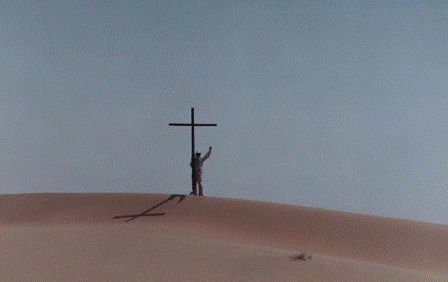 Water of Life
Water of Life
When I was a boy, my father managed a large cotton farm in northeast Louisiana, out in the country near a town called Oak Grove and just down the road from the tiny community of Goodwill.
The farm covered acres and acres of rich, fertile soil that had been recovered from swampland. During the summer growing season, dozens of migrant workers from Mexico chopped down the grass and weeds that grew among the cotton plants. Then later, during the fall, as many as one hundred workers walked up and down the rows picking the fluffy white cotton from the plants and stuffing it into big cloth bags.
It was hard work, made even harder by the burning sun and high humidity. Often my dad told me to deliver water to the workers so they could ease their thirst and replace the sweat that seemed to pour out of their bodies as they chopped away at the grass and weeds.
I remember one morning during the late summer of 1948 when Jesus began answering my prayers for guidance in a most unusual way. I was dressed in Big Mac overalls and a plaid shirt, and I was wearing a big straw hat to keep the blistering sun off my body. I carried two metal buckets filled with water, one with my right hand and the other with my left. As I walked barefoot through the fields, I could hear the water sloshing around in the buckets, but metal lids kept it from spilling out onto the ground.
Usually my father directed me toward a group of workers whom I could see chopping away as I looked over the tops of the cotton plants. The water buckets were heavy, so the sensible thing would have been to walk straight across the field to the workers. Even at the age of seven I knew that the shortest distance between two points is in a straight line.
But apparently God had another idea. As I walked across the field in the heat and humidity with my buckets of water, I felt Jesus speaking to me. It is difficult to explain exactly how I knew, but I felt within my spirit and my mind that Jesus was telling me to follow Him.
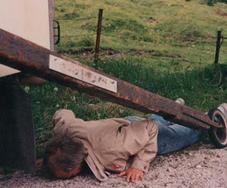 The path He chose was not a straight line that made the most sense to me. Instead I was to walk forward thirteen steps, then turn right and go another twenty steps and then turn to the left four more steps. As I obeyed each prompting, He continued to lead me around the field. Day after day as I carried the water, I sensed Jesus telling me where to go and where to turn.
The path He chose was not a straight line that made the most sense to me. Instead I was to walk forward thirteen steps, then turn right and go another twenty steps and then turn to the left four more steps. As I obeyed each prompting, He continued to lead me around the field. Day after day as I carried the water, I sensed Jesus telling me where to go and where to turn.
These directions made no sense to me. And there were times when all I wanted to do was get to the workers, deliver the water and sit down in the shade to rest from my wandering. But for some reason I never doubted that Jesus was speaking to me – even when I wound up a tree far from the choppers or when I seemed to go around in circles for half an hour. Even when Jesus’ commands made no sense tome, I could not shake the conviction that I was in God’s hands, going where He directed.
One day as I was walking in a field, I saw Dad’s truck in the distance. He spotted me and drove onto one of the many paths that cut across the fields. From the look on his face, I could tell I was in trouble.
Years later my father dedicated his life fully to Christ, but at that time he struggled with a drinking problem, which added elements of anger and violence to our lives. When he got close enough for me to hear him, he said some words I won’t repeat in this book. But the point of his message was this: “What the heck are you doing, son? The thirsty men are way over there at the other side of the field, but you are over here wandering around?”
“Well,” I said, “Jesus told me to come over here. He told me to turn right and turn left, so that’s what I did.”
A look of anger came over my father’s face as he yelled at me, pointed me in a straight line toward the workers and demanded that I deliver the water to them in record time. “And if I ever catch you doing this again, I will give you a spanking you will never forget!”
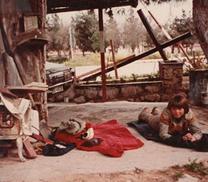 At that point I started crying and stammering. I didn’t understand why my dad was so mad. After all, I was only doing what Jesus told me to do. As I started toward the men, I looked over my shoulder and said to Dad, “Jesus told me to do this. I don’t want to be over here anyway.” Then I cried out to God: “What should I do now? You led me over there and I got in trouble for it!”
At that point I started crying and stammering. I didn’t understand why my dad was so mad. After all, I was only doing what Jesus told me to do. As I started toward the men, I looked over my shoulder and said to Dad, “Jesus told me to do this. I don’t want to be over here anyway.” Then I cried out to God: “What should I do now? You led me over there and I got in trouble for it!”
As I walked across the field, listening to the sounds of sloshing water, I sensed Jesus speaking to my heart: “You should obey your dad. But realize that I’m training you to hear my voice and obey me so you will be able to go where I’m leading you.”
Throughout the rest of the summer, I went straight to the workers whenever my father was nearby. But when he was in town or in the barn working on a tractor, I would listen for God’s prompting and go where he told me to go.
Little did I realize the experiences I had in the cotton fields that summer would prepare me for a life of following God around the world. I emerged from that summer having learned a lesson that would stay with me for the rest of my life. Right then I decided I would rather obey God and become a fool in other people’s eyes than fail to do what He was telling me to do. And I have never regretted that decision.
Two Big Questions
All of us need to figure out how we will spend our lives. What goals will we pursue? To which things will we give a greater priority? Which tasks will we attack with the most urgency? And which ideas will se simply ignore or neglect?
Since that Louisiana summer many, many years ago, I have been consumed with asking Jesus what He wants me to do with my life. I have repeatedly asked Him these two questions:
Where do You want me to go?
What do You want me to do?
Duty in the Desert
Fast-forward to 1998 – fifty years after my experiences in the cotton fields – and I am sitting at a desk with a stack of world maps. Once again I am asking Jesus these two questions:
Where do You want me to go?
What do You want me to do?
Over the years I had visited all of the sovereign nations in the world except two: Saudi Arabia and North Korea. Denise and I had been applying for visas to both countries for years. These applications had gone unanswered, but I felt I was being directed to take the cross to these countries.
In 1998 very few Americans visited Saudi Arabia. The Saudis are devout Muslims, and it was within the borders of their nation that the prophet Muhammad was born. Activity by Christian churches is forbidden and Bibles are banned, making this one of the most challenging nations in the world to walk with a cross. Most foreign tourists are not allowed entrance there. Only businesspeople, laborers with visas and Muslim pilgrims participating in the annual haj (or pilgrimage) are granted entry.
As Denise and I discussed our inability to get a visa for Saudi Arabia, she looked at me with her tender, yet strong eyes and said, “Let’s go anyway; Jesus will show us the way.”
Then as I prayed, Jesus spoke to me very clearly. “Go to Dubai, then to Abu Dhabi and then on toward Saudi Arabia. Turn left; then go right. That is the way in.”
Traveling to Saudi Arabia with a cross is more complicated than carrying buckets of water to workers in cotton fields, but the principle is the same. If God calls you and sends you, He will show you the way. After we had studied maps and every possible route to Saudi Arabia, Jesus showed us the way to get in.
We rented a car in Dubai, tied the cross onto the top of it, and began driving through the United Arab Emirates (UAE), a coalition of seven oil-rich states. After hours of driving in 102 degree temperatures through the desert and through Abu Dhabi, we arrived at the Liwa Oasis in the heart of the desert. As we followed God’s leading concerning when we should turn left and then right, we found ourselves at the end of a paved road. Surrounded by huge sand dunes, we were now driving on a sand road. This was certainly four-wheel drive country—a road for trucks heading for the oil fields—but we were in a car!
We prayed, and I increased our speed so we could keep moving in the soft sand. We would slip and slide as if we were on ice, but the Lord helped us keep going.
After hours of navigating the shifting sands, we arrived at a building that looked like a fort. It was the local police station and a border checkpoint for the UAE. We wanted to find out how far we were from the Saudi border, so we approached the office and inquired. A police officer had another man take us to an air-conditioned room where men were sitting on the floor drinking tea and eating. The men invited us to share their food, tea and cigarettes showing that hospitality is truly a universal language.
I showed the men some photos I carry with me from my previous trips. They were particularly interested in the photos of me standing next to Palestinian Liberation Organization leader Yasser Arafat or Libyan leader Muammar al-Gadhafi. The men in the room knew I was a follower of Jesus, but they were impressed that I had met and talked with these leaders who are respected among Muslims.
As we sat and chatted with the men, we explained our mission of carrying the cross in Saudi Arabia. We were shocked when one of the men told us, “Saudi Arabia is just there! When you leave this station you are in Saudi.”
When Denise realized we were so close, she made a courageous offer to the men. She told them she would stay in the station to guarantee my return if they would let me cross the border and carry the cross into Saudi Arabia. After talking to each other in Arabic for a moment, they came back with an even better offer. They would let us both cross the border, but they would keep our passports as assurance we would return as promised. They even seemed excited to help us do so.
We thanked Jesus for making the way for us and got in our car, which quickly became stuck in a huge sand dune a few yards from the border. But the men from the station got a truck and pulled us out so we could continue our journey. After we drove a short distance, the shifting sand gave way to a paved road that seemed out of place in this remote desert wilderness. We followed the road until we came to a place where we could park and I could bolt the cross together.
The hot wind blew sand in my eyes as I carried the cross. Denise drove alongside and filmed me as I walked.
I climbed a high sand dune and stood the cross straight up. For me this was a powerful symbol, seeing the cross lifted up in this land. Lying in the sand, I prayed for God to bless Saudi Arabia and grant its people liberty to hear the gospel. Then I opened my bible and read a passage from the prophet Isaiah: “A voice of one calling: ‘In the desert prepare the way for the Lord; make straight in the wilderness a highway for our God. Every valley shall be raised up, every mountain and hill made low; the rough ground shall become level, the rugged places a plain. And the glory of the Lord will be revealed, and all mankind together will see it. For the mouth of the Lord has spoken.’” (Isaiah 40:3-5)
As I prayed at the foot of the cross, I felt God telling me that our mission in Saudi Arabia was completed. After years of waiting and after driving twelve hours across 560 miles of desert sand in the baking heat, we had finally carried the cross in this nation.
We returned to the border post, picked up our passports, thanked the guards for their help and prayed for them.
For Those Who Have Ears to Hear
A frightening thing happened in 1983 when I was carrying the cross in Greece with my son Joshua and our team. At the end of a very long day of walking we asked an old man if we could sleep behind his house in our sleeping bags. He said yes and showed us a smooth place in his yard we could stay. We all went quickly to sleep.
The next thing I knew, our restful night was interrupted by a frightening sound. I had the feeling the whole world was falling apart. The noise and shaking and rumblings were so strong that I thought we were in the middle of an earthquake. We leaped up in panic, as the sounds and shaking grew stronger. But then we heard a train whistle and the telltale sound of steel wheels on iron tracks. This was no earthquake—we had been sleeping next to a railroad track!
The next morning we asked our Greek host how he could sleep through such noise. He laughed and responded, but the only word we could understand was “normal.” The sound and fury of the nightly train were as normal to him as the sound of crickets to me.
Unfortunately, I think some people have become so accustomed to not hearing the voice of God that this absence of guidance is a normal state for them. God may be trying to get their attention and guide them, as He was when I carried water in the cotton fields, but they have closed their ears and hardened their hearts. After years of tuning God our, they wonder why they can’t hear God speak to them when they pray or when they ask for guidance at a crucial moment in their lives.
The apostle Paul wrote, “Let us also walk in the Spirit (Galatians 5:25 NKJV). The Greek word stoicheo means “to walk in line,” much like a marching soldier or a member of a marching band would do. This is a good picture of how we should follow God’s leading today. Walking in the Spirit means to be in step with the Spirit. We are to walk in step with the Holy Spirit’s guidance. And this begins with listening; so when the Spirit says to go left, we are to immediately turn left.
This is how I have sought to live my life, and it’s the way you can live your life too. God may not be sending you to Saudi Arabia; but He has things He wants you to do. Are you listening for his call?
A lesson I have learned over the years is a simple one. The most important decision you will ever make will be the response you make to the next thing God calls you to do. It’s not about what you did or didn’t do twenty years ago; it’s not about what you think you might or might not do ten years from now. It’s about asking God the two questions we noted at the beginning of this chapter and obeying promptings the Lord gives you:
Where do You want me to go?
What do You want me to do?
Try asking these questions every moment of every day and listening for the answer you receive. You will be amazed at where you will go and what you will do.


